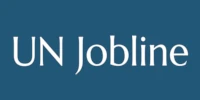Survey firm for livelihood-migration trade-off study
JOB DETAIL
Livelihood-migration trade-off study
Request for Proposal (RFP) and Terms of References (TOR) for Consultant / Survey firm.
1. Objectives
The Tajikistan Evaluation and Analysis Activity (TEAA) seeks to engage a consultant or survey firm to conduct data collection for a study on livelihood-migration trade-offs. The goal of this study is to identify the relative importance of different livelihood factors that determine a households decision to send a household member as international labor migrant. More specifically, the survey looks into trade-offs with livelihood opportunities which are often offered by international and national development and social assistance programs, including cash-for-work programmes. This study will make use of a discrete, hypothetical choice experiment to model these livelihood trade-offs.
2. Specific Tasks
The research will take place in Khatlon Province, Tajikistan.
The survey firm is expected to contribute to the successful completion of the project as follows: (i) questionnaire improvements through feedback, focus group discussions and pretesting; (ii) enumerator training (2 days) and survey implementation with 408 households.
Two gender-separated focus group discussions should be conducted to ensure that respondents perceive the predetermined attributes and their levels as realistic. Subsequently, a pretest of the questionnaire (including choice cards) should take place with 6 male and 6 female respondents who are main decision-makers in their homes, and with 3 male and 3 female respondents who are not main decision-makers.
In total, we intend to interview 408 households in 34 villages. Four contrasting districts will be selected based on migrant and agricultural characteristics of the population. In the two largest districts, we will randomly select 9 communities. In the two smallest districts, we will randomly select 8 communities. Twelve households will be interviewed in each community.
The questionnaire will capture relevant socio-economic household characteristics and a discrete choice experiment. Administering the questionnaire is expected to take on average 1 hour. The questionnaire will be implemented through CAPI (computer-assisted personal interviewing), which will be coded by IFPRI. The consultant will not need to program the questionnaire.
3. Timeframe
The consultant is requested to start as soon as possible. Focus Group Discussions and pretesting should be finalized in September, and data collection must be completed in October.
4. PROPOSAL
With this announcement, interested individuals or companies are requested to submit a technical and financial proposal to be considered by IFPRI. Proposals should be submitted by September 7, 2024.
5. SELECTION CRITERIA
Consultants or survey firms will be selected based on their experience in conducting household survey data collection, based on familiarity with the region (Khatlon Province), expertise in the research topic.
